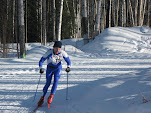Those Who Maintain Attain—Robert H. Sayre, my great grandfather, at one time a CEO of Bethlehem Steel.
Genes and running are kind of a hot topic this week, with
recent articles in the NY Times and the publication of a new book
Sports Gene by David Epstein. So these have generated some buzz in the internet sports world. Meanwhile, the other night (before I’d even seen these) I bumped into a friend who said he thought I was genetically gifted as a runner.
What? Me? Gifted? Comparable to one of our own local Olympians? Ahh that’s a nice compliment, but I don’t think so.
While I’ve enjoyed a good run as a masters athlete for many of the past 15 years, I’ve never thought of myself as particularly gifted. Gifted is someone like Jim Ryun or Asbel Kiprop, who within a short span (weeks or months of picking up the sport) put out some amazing times.
See this
interview from Runners World of Epstein. Note however, Ryun didn’t improve from 5:40 mile to 4:08 as a freshman in high school. I know this because as a 9 year old my grandparents bought me a book titled “America’s Greatest Sports Heroes.” Ryun ran 5:30 or 5:35 just starting out, and then ran 4:17 the following spring. Anyway, that’s gifted!
My start was much more modest. I began training late (almost 19) and plateaued quickly. By the time I graduated from college at 22 my best times for the mile was 4:31, 5K in the low 16s, and 8K was 27:00 (but 32:50 for off season 10Ks on the roads). I’d place about 90th-110th/250 or so at our NCAA Division III regional championships (small schools, no scholarships = not exactly the cream of the crop).
I didn’t reach a peak until my mid to late 20s, when I’d improved to about 4:24, 15:10s for 5K, and about 31:50 for 10K. Those were decent times at a regional level, but hardly in the gifted category. But by my mid-30s, I fell off the charts which made for a nice masters comeback at 40 when I ran 4:38, 16:20, and 34:07.
Going to the age grade charts, my percentiles (for 1 mile, 5K, and 10K) were about 81.6 in college, 84.9 for post college peak, and 84.3 as a 40-42 year old masters runner. And, despite some injuries into that stopped me cold for a few years I was quite happy to re-emerge at 46 (coinciding with our move to Fairbanks in 2004) and to keep running in the 84s-85s for several years. That was all good.
However, two interesting things happened after turning 50. First, although my times did not improve from year to year, my age grade points started creeping up into the 86s and 87s. So I found if you can maintain your speed you can attain a higher percentage. For example, my mile, 5K, 10K age grade points this year were 87.5. Well, we all slow down (and not always linearly) after about age 35, so it makes sense for your points to go up.
Second, however, and more interesting (and much more surprising) was that the depth and level of competition just dropped off precipitously after 50. This happened locally, regionally, and nationally. It’s like you hit 49 or 50 and you still see some outstanding performances at the top, but the level of depth is thin. Injuries, life, waning interests, and maybe even genetics take their toll.
So let’s talk about this nature-nurture thing a little. Robert Johnson of Letsrun.com fame (maybe infamy) wrote an
interesting review on Epstein’s Sport Gene book. To summarize, Johnson’s interpretation is that to excel a runner needs a certain body type,
skinny legs; an
ethnic group recently moved to altitude; or
simply growing up at altitude. In my own experiment of one maybe I hit on two of those, but not totally.
My thighs aren’t terribly skinny (decades of cross country skiing will do that) but I’m pretty light boned, and my ankles and wrists
are skinny. I’m obviously not Kalenjin, although there is speculation that my Finnish (some not so bad runners in their history) ancestors originated from the southern Urals. But I doubt if there’s any predisposition there, and definitely not with thy WASPy side of my father’s genes. However, and this may matter, I was born at mile high altitude in Colorado and spent about 19 of my first 30 years living at 5,000 to 9,000 feet. So maybe, just maybe, there is a benefit there that is carrying over through middle age: increased surface area in my lungs.
I don’t know. Maybe it’s just a bit of luck.
Anyway, here’s my list for keeping it going as a masters runner:
• Consistency
• Love of the sport
• A little bit of immaturity doesn’t hurt
• Adhere to the principles of aerobic development (this is important)
• Do only as much race-specific training as you need
• Know your limits, as well as your strengths
• Recover when you need it (this probably is most important)
• Leave your best running for the races, awesome workouts be damned
Finally, my Holy Grail? An age graded result in the 90s. But even then, it’s just great to be out there running.

